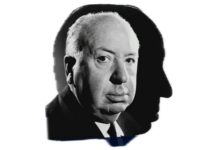In baseball, a batter can wait for his pitch before taking a swing. But if he waits too long and lets three strikes go by without swinging, he’ll be called out on strikes.
Investing is like playing baseball with no called strikes, says Warren Buffett, the world’s greatest investor. You can wait endlessly for an easy pitch before swinging.
“Because they can’t strike out looking, investors needn’t feel pressured to act,” Buffett says. “They can pass up lots of opportunities until they see one that’s terrific. You stand at the plate; the pitcher throws you General Motors at 47! U.S. Steel at 39! And nobody calls a strike on you. There’s no penalty except opportunity.”
That’s why Buffett’s company, Berkshire Hathaway, is holding its highest cash position ever, CNBC reported. A commentator said it seems Buffett isn’t finding “anything that is compelling at a price that’s compelling” to buy.
The stock market is richly valued by many measures, having tripled since the bottom of the financial crisis in March of 2009. One reason has been the near-zero interest rates provided by the Federal Reserve, the nation’s central bank.
Low interest rates have made it easy for corporations to borrow money to buy back shares, boosting their stock prices. And low rates on deposits have pushed investors to move money out of savings and into stocks, which also boosts prices.
The Fed has said it will start raising interest rates next year, so what has been a tailwind for stocks may soon turn into a headwind.
Buffett’s patience has paid off for him and Berkshire shareholders over the decades. From 1965 through 2013, Berkshire Hathaway has grown its assets by an average of 19.7 percent per year, versus 9.8 percent for the Standard & Poor’s 500 stock index, according to Berkshire’s annual report.
Asked what is the secret to his success, Buffett once said: “Be fearful when others are greedy and greedy when others are fearful.” With the S&P 500 setting all-time record highs 30 times this year, Buffett apparently has become “fearful.”
Most investors were “fearful” in early 2009 when the U.S. was in the throes of its worst financial crisis since the Great Depression. That’s when Buffett got “greedy” and made huge investments in such companies as Burlington Northern Santa Fe, Dow Chemical and Goldman Sachs. Buffett believed investing in those companies at the prices they fetched in early 2009 to be easy pitches to hit.
There were lots of bargains to be found then. For example, Scotts Valley’s Seagate Technology was losing money amid the downturn in early 2009. Its CEO quit and it was laying off 6 percent of its workers. Shares fell to $3.04 a share on March 6, 2009, down from $28.90 just 15 months earlier, and many investors feared they would fall to zero.
But some saw Seagate at 3 bucks a share as an easy pitch to hit. Those who bought then were richly rewarded; Seagate shares recently traded at $60 a share. That’s the kind of contrarian thinking — going against the crowd — that exemplifies Buffett’s advice about getting greedy when others are fearful.
Golden buying opportunities like that are rare. But Buffett seems to think better opportunities lie ahead, so he’s holding high levels of cash in anticipation. When opportunities come, I assume he’ll be making big investments, not small ones, in keeping with another piece of Buffett advice:
“When it’s raining gold, reach for a bucket, not a thimble.”
– Mark Rosenberg is a financial adviser with Financial West Group in Scotts Valley, a member of FINRA and SIPC. He can be reached at 831-439-9910 or mr********@*wg.com.











